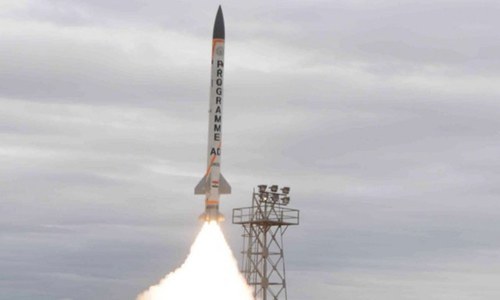Indian maps bill a travesty of history, international law: Pak's UN envoy
UNITED NATIONS: Indian tactics to depict Azad Jammu and Kashmir (AJK) as part of India cannot change the fundamental fact that the state is 'disputed territory', Pakistan's Ambassador to the United Nations (UN) Dr Maleeha Lodhi said on Wednesday. She was referring to a controversial draft bill seeking to regulate India's geospatial information.
Under the Geospatial Information Regulation Bill, anyone distributing a map that the Indian government deems to be "wrong" could be liable for a billion-rupee fine and jail time.
Voicing Pakistan's "serious concern" over the draft bill, Ambassador Lodhi termed India's claim over AJK as an integral part of its territory "untenable" and hit out at the "travesty of history, morality, international law and facts on the ground".
In her letter, now distributed as an official UN document, the Pakistani envoy regretted that the international community and the United Nations had failed to take notice of this action on India's part.
Lodhi told APP that AJK was a disputed territory and "numerous UN Security Council resolutions attest to this".
Indian External Affairs Ministry spokesman Vikas Swarup claimed that the proposed draft bill was "an entirely internal legislative matter of India, since the whole of the state of AJK is an integral part of India".
"Pakistan or any other party has no locus standi in the matter," he added, rejecting what he called "repeated and increasing attempts by Pakistan to impose on the international community matters that it had always been open to address bilaterally".
Lodhi called on the international community to honour its responsibility to the people of AJK and reiterated the need for an "independent and impartial plebiscite under UN auspices".
India's Geospatial Information Regulation Bill
The bill, which is up for public consultation, was published on the home ministry's website earlier this month and lists penalties, including a prison term of up to seven years and a fine of one billion rupees. In addition, the bill stokes concerns over privacy, free flow of information and innovation.
“No person shall depict, disseminate, publish or distribute any wrong or false topographic information of India including international boundaries through Internet platforms or online services or in any electronic or physical form,” the draft Geospatial Information Regulation Bill says.
The new bill also states that a license will be needed to “acquire, disseminate, publish or distribute” maps, meaning services like Google Maps and Apple Maps could have to apply for permits.
Anyone wanting to use India's geospatial image outside the country will also have to secure permission.
The draft legislation proposes setting up of four enforcement bodies: an Apex Committee, a Security Vetting Authority and an Enforcement and Appellant Authority.














































